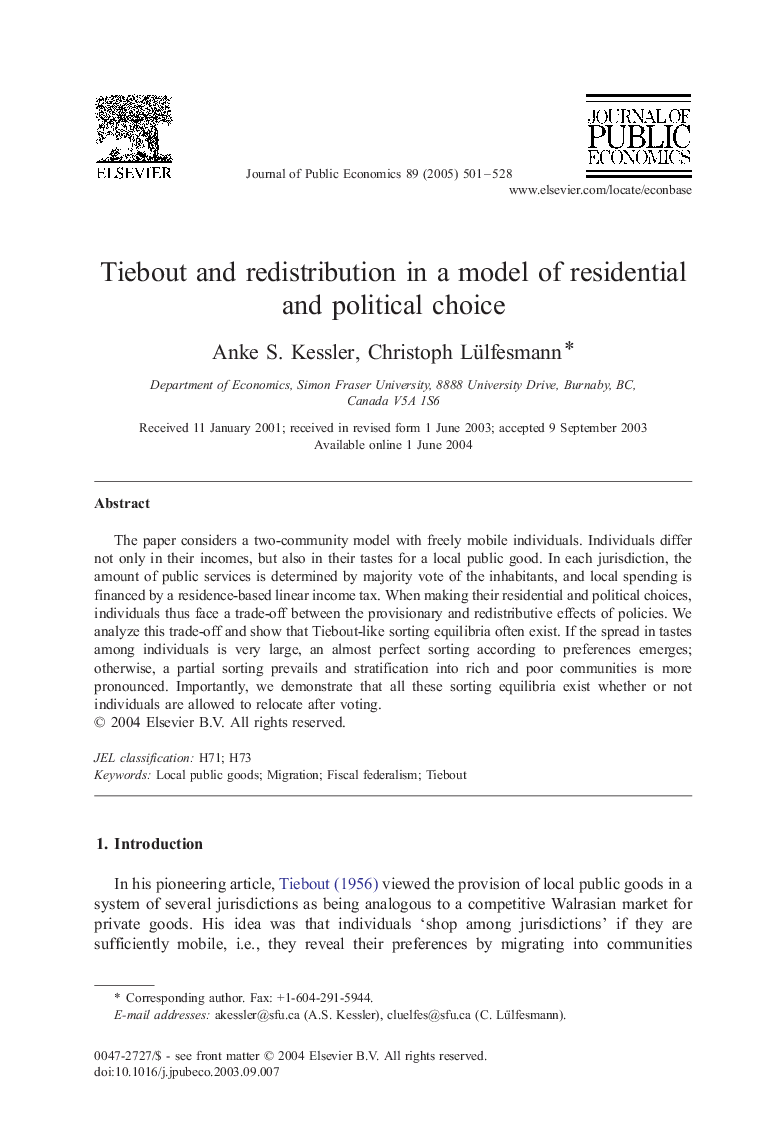| Article ID | Journal | Published Year | Pages | File Type |
|---|---|---|---|---|
| 9726886 | Journal of Public Economics | 2005 | 28 Pages |
Abstract
The paper considers a two-community model with freely mobile individuals. Individuals differ not only in their incomes, but also in their tastes for a local public good. In each jurisdiction, the amount of public services is determined by majority vote of the inhabitants, and local spending is financed by a residence-based linear income tax. When making their residential and political choices, individuals thus face a trade-off between the provisionary and redistributive effects of policies. We analyze this trade-off and show that Tiebout-like sorting equilibria often exist. If the spread in tastes among individuals is very large, an almost perfect sorting according to preferences emerges; otherwise, a partial sorting prevails and stratification into rich and poor communities is more pronounced. Importantly, we demonstrate that all these sorting equilibria exist whether or not individuals are allowed to relocate after voting.
Related Topics
Social Sciences and Humanities
Economics, Econometrics and Finance
Economics and Econometrics
Authors
Anke S. Kessler, Christoph Lülfesmann,
